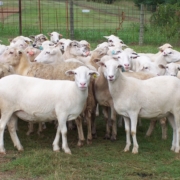Selling Meat During the COVID-19 Pandemic
 Print This Post
Print This Post
By Margo Hale, NCAT Southeast Regional Director and NCAT Livestock Specialist
When the COVID-19 pandemic started, I, like many of you, was focused on working from home while also homeschooling my daughters. I was busy postponing and rescheduling several NCAT training events and figuring out how to best serve our ATTRA clients. As the pandemic continued to spread, we saw various impacts in all aspects of our life. Across the country, we saw our traditional supply chains falter, and consumer buying habits changed overnight. Thankfully, our household never ran out of toilet paper, but it was several weeks before I could find rice and beans to buy!
Because we raise our own beef, pork, and eggs, I rarely pay attention to those areas of the grocery store, but it was shocking to see empty shelves. We sell only a few beeves and hogs each year, mainly to friends and coworkers. You can learn more about how we sell our beef and pork from this short video. While we never have a problem selling what we have available, we also don’t usually have an overwhelming demand. As soon as COVID-19 hit, though, people who have never bought meat from us before began reaching out to see if we had any meat available for sale. They wanted to stock their freezers! I heard from farmers all over the country that this was happening to them, too. This demand is great for producers, but it also comes with some challenges.
Meeting Increased Demand for Local Meat
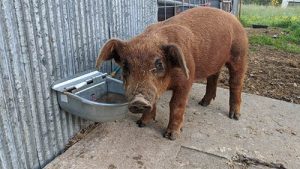 You might be able to gain new customers during this time, as people are wanting to stock their freezers and prepare for supply-chain disruptions. You want to ensure that these new customers continue purchasing from you even after the grocery stores are restocked. In order to do this, you must provide an excellent product and good customer service. It is tempting to quickly scale up production to take advantage of the demand, but don’t do so at the cost of quality. Don’t process and sell animals that don’t meet your highest quality standards. Providing great customer service is another way to keep customers coming back. NCAT Specialist Dave Scott and his wife Jenny shared some really great tips on providing excellent customer service to their meat customers in the Direct Marketing Meat podcast series.
You might be able to gain new customers during this time, as people are wanting to stock their freezers and prepare for supply-chain disruptions. You want to ensure that these new customers continue purchasing from you even after the grocery stores are restocked. In order to do this, you must provide an excellent product and good customer service. It is tempting to quickly scale up production to take advantage of the demand, but don’t do so at the cost of quality. Don’t process and sell animals that don’t meet your highest quality standards. Providing great customer service is another way to keep customers coming back. NCAT Specialist Dave Scott and his wife Jenny shared some really great tips on providing excellent customer service to their meat customers in the Direct Marketing Meat podcast series.
Episode 128. Direct Marketing Meat with Dave and Jenny Scott. Part 1
Episode 129. Direct Marketing Meat with Dave and Jenny Scott. Part 2: Processing
Episode 136. Direct Marketing Meat with Dave and Jenny Scott. Part 3: Relationships
Episode 137. Direct Marketing Meat with Dave and Jenny Scott. Part 4: FAQs
In the ATTRA video COVID-19 Market Adjustments, you can also hear how COVID-19 has affected Dave’s and Jenny’s business, Montana Highland Lamb.
Plan for Processing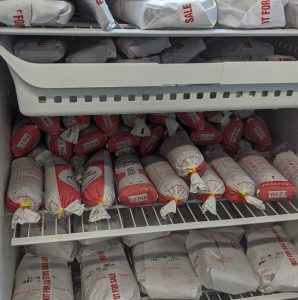
Another challenge many livestock producers are facing is the lack of processing. Access to meat-processing facilities has always been a challenge for small-scale livestock producers. The problem has been exacerbated during the pandemic. Producers are increasing production in response to increased demand for direct-to-consumer meat sales—which means there are more animals to process in facilities that already have limited availability. For example, I can usually call just a couple of months in advance to schedule a processing date for our animals; I called our processor in May and the earliest dates they had were in January 2021! Our hog will be awfully big by then. If you are a livestock producer and haven’t already booked your processing appointments for the coming year, I encourage you to call your processor today. I had a great conversation with Rebecca Thistlethwaite with the Niche Meat Processors Assistance Network about these challenges with processing, especially during this time. You can listen to that podcast here.
If you are a livestock producer, there is a great opportunity to meet the demands for locally-produced meat, though there will likely be some challenges. If you are selling meat directly to consumers for the first time, expanding production, or have questions related to processing, please know our NCAT Livestock Specialists are here to help. You can contact us by calling 800-346-9140 or emailing askanag@ncat.org.
Related ATTRA Resources:
Organic and Grass-finished Beef Cattle Production
Direct Marketing Lamb: A Pathway
Working with Your Meat Processor
Other Resources:
Niche Meat Processor Assistance Network
Farm to Freezer: The Logistics of Online Sales & Shipping Meat Webinar
The New Livestock Farmer: The Business of Raising and Selling Ethical Meat

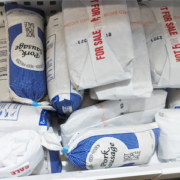
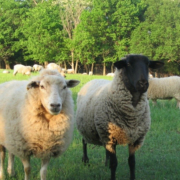
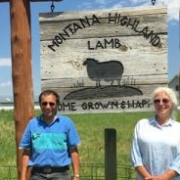
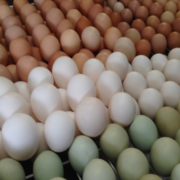
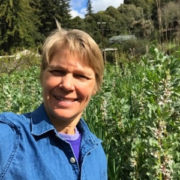
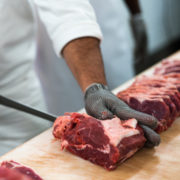 Canva Pro
Canva Pro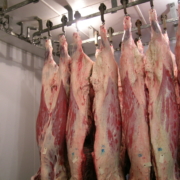 Photo: Arion Thiboumery
Photo: Arion Thiboumery